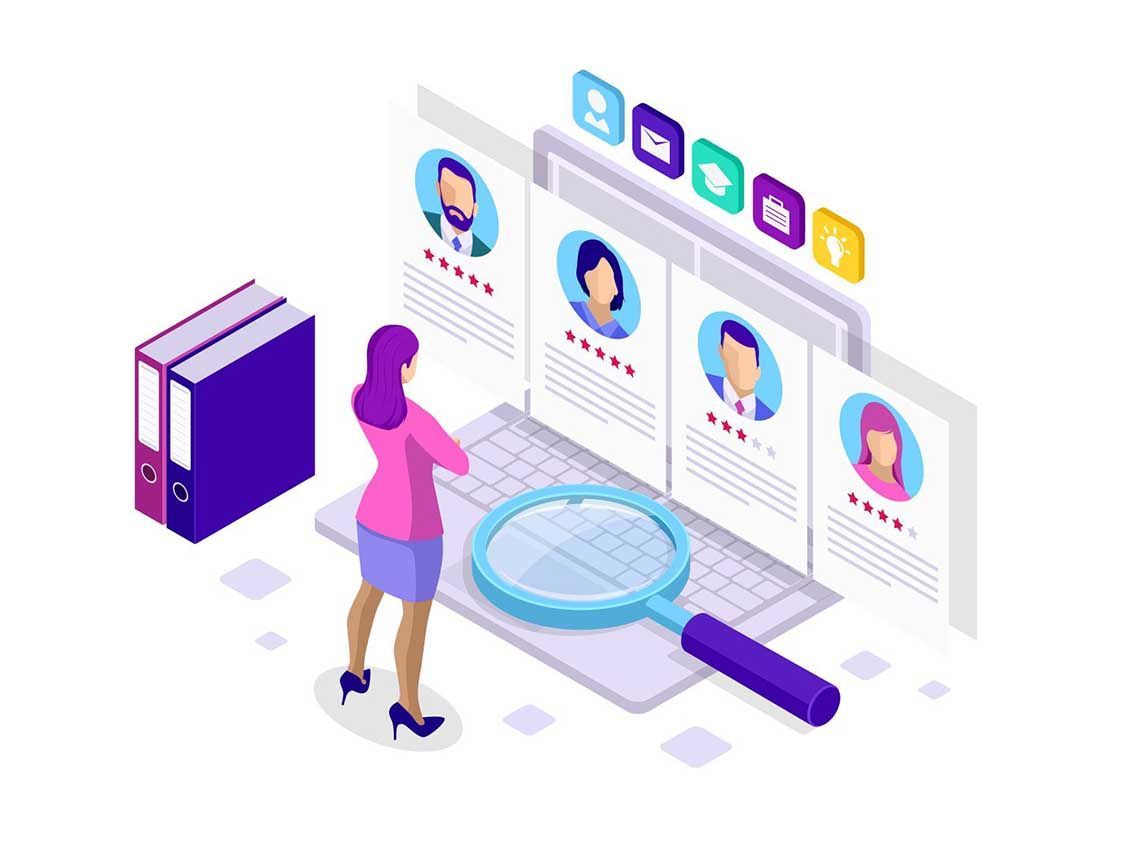How to Use AI Ethically in College: A Student’s Guide to Smart, Responsible Learning
Artificial intelligence (AI) tools, such as ChatGPT, Grammarly and AI-driven research assistants, are becoming...

The human resource technology industry is moving fast. It seems like every few weeks there’s a new system or resource created to help recruiters hire great employees. It can sometimes be a bit overwhelming how much new tech is being marketed towards HR professionals, but there are some advancements which have helped improve the hiring process and should be used by everyone working in recruitment.
Here are five ways recruitment has become more digital and why your hiring teams need to be taking advantage of these advancements:
One of the first digital transformations to occur in the recruitment process was the availability of online applications. These days, it’s rare for an applicant to apply for a job that doesn’t have some online element, be it emailing a resume or filling out an application form through the internet.
Digital applications have made it much easier for recruiters to review resumes and track a candidate through the recruitment process. It has also allowed the inclusion of applicant tracking systems, which previously had to be done manually.
Mobile recruiting is still fairly new with not a lot of human resource professionals using it yet, but it is on track to be one of the top recruitment trends of 2019. Mobile recruiting is essentially allowing your candidates to complete any part of the recruitment process that isn’t a face-to-face interview on a mobile device, be it smartphone or tablet.
The trend of having a computer for personal use has quickly shifted. Now, almost everything you used a computer to do can also be done using a smartphone or tablet. As this becomes more prominent in our modern world, recruiters will need to make sure every step of their recruitment process from an applicant’s view can be done on a personal device, not just a computer or laptop.
Interviewing has also gotten a digital advancement, especially for the early-stage interviews. The creation of video interviewing software has made it possible for recruiters to replace both the screening phone interview and the first in-person interview with technology.
Video hiring allows recruiters to talk to any candidate around the globe, and is designed to help you speed up the recruitment process while spending less money. There are still some stragglers when it comes to adapting to this technology, but all you have to do is read some online reviews of the technology to see its usefulness when hiring.
Recruiters have long known the value of a structured interview when it comes to hiring the best candidate fairly. The problem, though, is a structured interview usually comes with a lot of paper which can be lost, disorganized, or accidentally shredded.
Digitizing structured interviews is a natural progression in the advancement of recruitment technology. Doing this helps recruiters complete their job more efficiently and with less stress. It also helps keep candidates organized as all the data is saved in the system for you to review, allowing recruiters to look at candidates and their answers side-by-side.
The recruitment process is much more automated than it was even just five years ago. One thing to expect now and in the future is an increase in the use of hiring with help from computers.
Right now, most recruiters get a computer to “read” a candidate’s application before they even look at it, searching for keywords related to the job position. There’s also automatic interview scheduling and a system to send out pre-selected emails at a certain stage. This automation has helped recruiters hire better people by eliminating the need to complete time-consuming, low-value tasks.
We’ve already entered the world of artificial intelligence and it has found a role in the hiring process, but researchers in the HR tech industry are still trying to figure out how to best put it to work. The issue most people are seeing with AI is it’s taking away the human element of hiring. The problem with this is if the data which created these AI algorithms is flawed, it can ultimately end up reinforcing existing bias in the recruitment process. Researchers will need to figure out how to bypass this issue before AI becomes a hiring solution we can rely on. Until then, human decision making based on a structured interview methodology is still the best way to hire employees.
The recruitment process will keep adapting as technology gets more advanced. Don’t be shocked to see more innovative technology come out of the woodwork in the next few decades, all designed to help recruiters do their job.
Explore these additional articles for more insights.